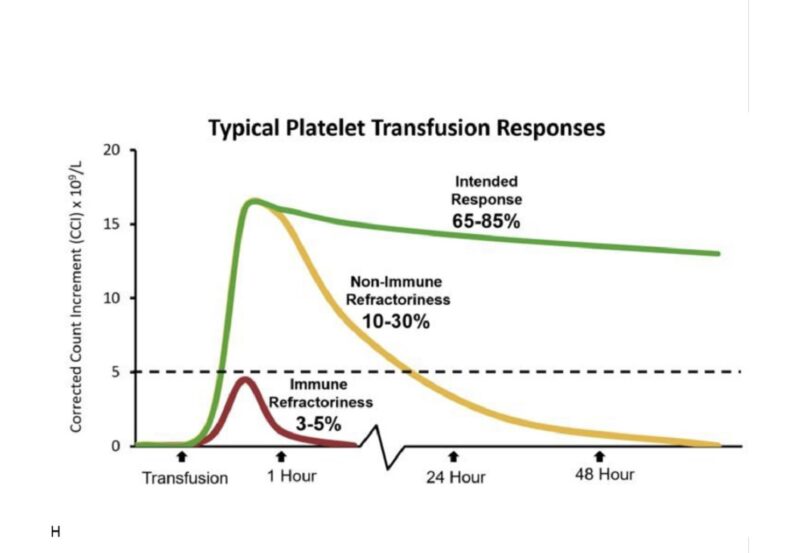
Caitlin Raymond on Platelet Refractoriness: New Series Alert!
Caitlin Raymond, a board-certified Clinical Pathologist and current Transfusion Medicine Fellow at the National Institutes of Health, shared on LinkedIn:
“New Blog Post: Platelet Refractoriness — An Overview
One of the most frustrating challenges in transfusion medicine is when platelet transfusions don’t “stick.”
Platelet refractoriness is common, multifactorial, and has huge implications for bleeding risk, patient outcomes, and stewardship of scarce blood products.
In this post, I walk through:
- How we define and measure refractoriness (CCI)
- Why non-immune causes (like sepsis, bleeding, or splenomegaly) are the most common and should be ruled out first
- How we evaluate immune causes with HLA typing, antibody screens, PRA, and crossmatches
- Practical management strategies, from HLA-compatible platelets to PRA-guided selection
- The real-world challenges of balancing ideal care with limited resources
Key takeaway: Refractoriness isn’t rare—and a structured approach can make transfusion both safer for patients and more sustainable for the blood supply.”
Read the full post here.
More from Caitlin Raymond featured in HT!

More series on coagulation featured in Hemostasis Today.
-
Feb 24, 2026, 16:18Salmaan Dalvi: Mapping Rare Diseases Across East and Central Africa
-
Feb 24, 2026, 16:16Wolfgang Miesbach: Game‑Changing Data on Intensive FVIII Replacement in Haemophilia A with Hypertrophic Synovium
-
Feb 24, 2026, 16:01Is It Safe to Briefly Stop Anticoagulation After VTE? – RPTH Journal
-
Feb 24, 2026, 15:58Anastasia Conti: Honored to Receive the Roche Foundation Grant for Independent Research in Onco-Hematology
-
Feb 24, 2026, 15:55Courtney Lawrence: Targeted Donor Screening Reduces Transfusion-Transmitted Babesia Cases
-
Feb 24, 2026, 15:30Aswin K Mohan: Practical Tips for Preparing Before, During, and After Blood Donation
-
Feb 24, 2026, 15:24Stéphanie Forté: The Hidden Burden of Stroke in Adults Living with Sickle Cell Disease
-
Feb 24, 2026, 15:13Tagreed Alkaltham: Equity in Emergency Care Through a Blood Bank Lens
-
Feb 24, 2026, 14:57Joseph Raffaele: Can Improving Mitochondrial Quality in Immune Cells Alter Immune Aging Markers?

